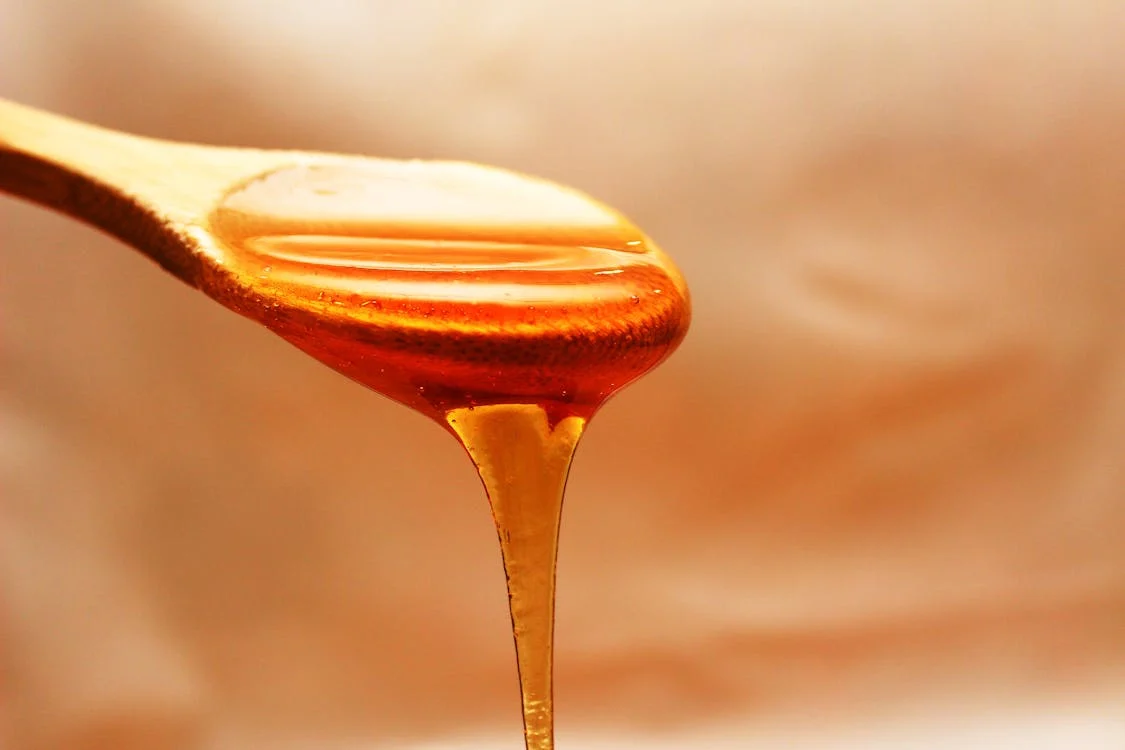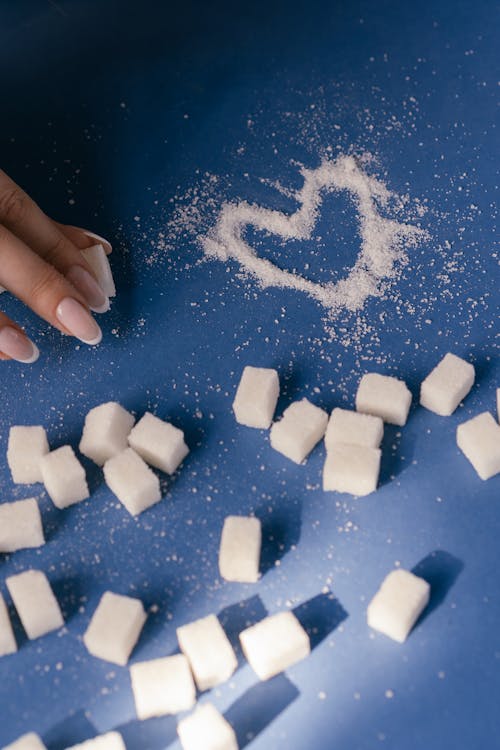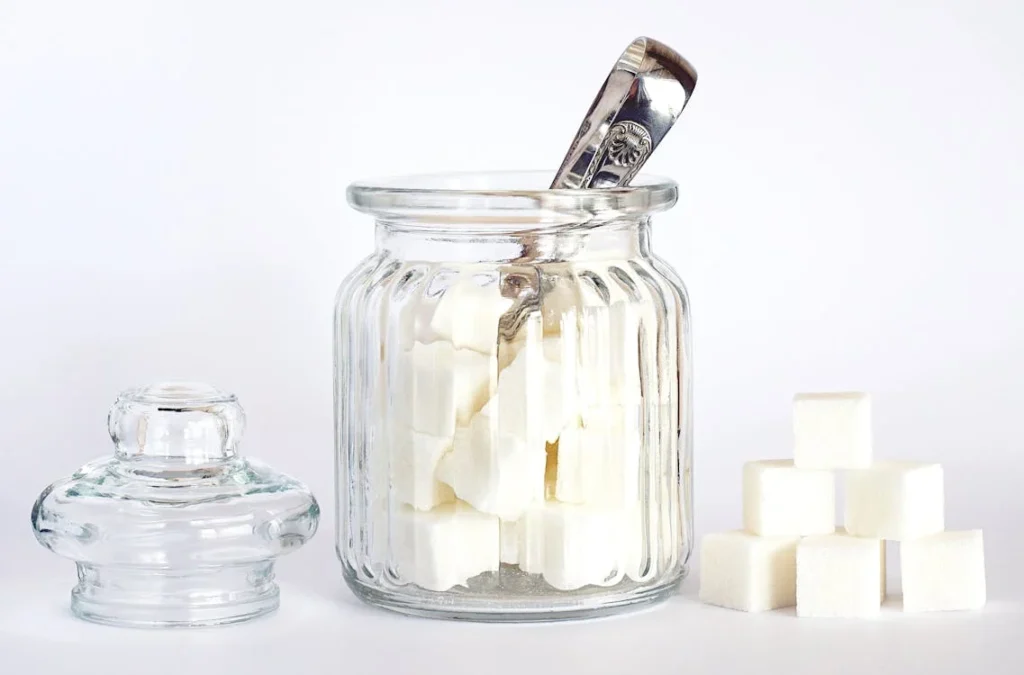Sugar is everywhere, and it’s hidden in everything, from your morning coffee to what seems like a healthy salad dressing. All cool with a little sweet treat now and then? But too much sugar can take a serious toll on health. It’s associated with a higher risk of obesity, type 2 diabetes, and heart disease.
Going in-depth into the world of sugar replacements, natural and artificial, their potential health benefits, and how you can settle on one that suits you best. We will answer the FAQs on the topic, bringing you in a position to make well-informed choices on how to sweeten your life healthily.
The downside of the sugar craze
Before we continue and outline choices, let’s review why it is so vital to moderate sugar intake. Added sugars are a major source of extra calories, which can lead to gaining unwanted weight.
Sugar also wrecks your blood sugar levels. When you consume sugar, your body throws insulin at it to clean up the sugar in your blood. This in turn leads, after enough such insult, to insulin resistance — a serious risk factor for type 2 diabetes.
More than that, it causes inflammation in the body and is linked to most of the chronic diseases. It is also able to lead to damage to one’s oral health by the creation of bacteria that cause cavities.
Appeal of Sweetener Substitutes
The answer appears to be emanating from the wondrous world of sugar substitutes—now even enabling one to be as sweet as they desire without their health being compromised from the dire effects of added sugar. But this world of sugar substitutes can be a confusing one with the incredibly large variety of these products. The two most significant categories we are going to look at are natural and artificial sweeteners.
Natural Sweeteners: Nature’s Gift
Natural sweeteners come from plant, fruit, or other natural resource origin and are more likely to contain additional nutrients than refined sugar, such as vitamins, minerals, and antioxidants. Here are some of the most common natural sweeteners:
Stevia: Stevia is extracted from the leaves of Stevia rebaudiana, an incredibly sweet plant (hundreds of times sweeter than sugar) and with almost no calories. There is some evidence to suggest that it may even have health benefits, such as helping to lower blood pressure. However, some people find its aftertaste unpleasant.
Monk Fruit Extract: A high-intensity sweetener extracted from the fruit monk, it is another powerful, but very low-calorie sweetening agent. It is slightly sweet in flavor, clean, and may even have some anti-inflammatory properties.
Erythritol: Sugar alcohol is naturally present in some fruits and fermented foods. It is just as sweet as sugar but almost calorie-free. Erythritol does not raise blood sugar and is generally well tolerated, but when overconsumed, it can cause digestive issues.
Allulose: Another sugar alcohol, allulose, is a rare natural compound found in small quantities in some fruits, like figs and raisins. It tastes just like sugar and doesn’t spike blood sugar. However, it’s less readily available than other natural sweeteners.
Dates: Dates may not be entirely free of calories, but they are a natural source of sweetness loaded with fiber, vitamins, and minerals. They are great in baking or simply chopped up for a healthy snack.
Honey has a unique flavor profile for a natural sweetener, but it packs in antioxidants and some quantities of friendly bacteria. But again, it still contains calories and sugar, so it should be eaten in moderation.

Artificial Sweeteners: Science Sanctioned
Artificial sweeteners are synthetic, and normally, most have a very high sweetness compared to sugar. They have minimal to zero calories and do not raise blood sugar. Here are a few common artificial sweeteners:
Splenda: Safe in general, this widely used artificial sweetener does not, however, raise blood sugar. Some studies show that it changes the composition of gut bacteria.
Aspartame (Equal, NutraSweet): Aspartame is another common choice; however, it has not been without controversy. Most studies show it to be safe for most people at moderate levels of intake.
Saccharin (Sweet’N Low, Sugar Twin): This is the oldest artificial sweetener, very calorie-free, and does not raise blood sugar; however, it does tend to have a bitter and metallic aftertaste that some people do not like.
Acesulfame K (Sunett, Sweet One): Often combined with other sweeteners to mask aftertaste, acesulfame K is a calorie-free sweetener that does not raise blood sugar.
Picking the Best Sweetener for Kicking the Sugar Habit
Indeed, the vast number of options in sugar substitutes makes choosing the right sweetener seem a little daunting. Several things to consider include:
Level of sweetness: some of the natural sweeteners are excessively much sweeter than others; you may want to consider how sweet you take your drinks or food.
Sample: Test which sweetener tastes best by tasting the different types of sweeteners.
Caloric load: If keeping the total caloric content significantly low is a priority, then artificial sweeteners or very low-calorie options like stevia or erythritol might be preferable.
Blood sugar impact: With a low impact on blood sugar, diabetics or people managing blood sugar should take artificial and natural sweeteners such as stevia and monk fruit.
Potential Health Benefits: Some natural sweeteners like stevia or monk fruit can offer some other health benefits beyond sweetness.
Culinary use: some sweeteners are heat-stable, while others are not sweet or lose their sweetness when cooked or baked at high temperatures, such as erythritol.
Safety Considerations Kicking the Sugar Habit
Although most sugar substitutes are safe when ingested in moderate quantities, there may be some exceptions to consider.
Artificial sweeteners: Research shows that artificial sweeteners are safe for a majority of the population when taken in moderation, but the few who may be sensitive will experience mild digestive stress or allergenic reactions. Always consult your doctor if any concerns are brought up.
Sugar alcohols: Generally, sugar alcohols are well-tolerated, but their overconsumption may cause bloating, gas, and diarrhea. Start with small amounts and gradually increase intake to assess your tolerance.
Natural sweeteners: They can be considered natural products, yet both of them contain sugar and calories. They have to be consumed in moderation and careful quality by those watching their weight or blood sugar.

An Informative Guide Towards Transition
Transitioning off sugar should be as deliberate as possible. Here are some steps that could ease you through the switch to healthier sugar replacements:
Slowly: Don’t go cold turkey. Wean yourself off the sugar you’d usually add to drinks and recipes, and replace it little by little with your sweetener of choice.
Focus on whole foods: Fill up on sweet, naturally sweet foods—fruits, vegetables—and you’ll be able to keep your sugar tooth tamed without resorting to a lot of junk.
Experiment with flavors; use spices like cinnamon or nutmeg for that added kick, which can render it unnecessary to add more sweetness
FAQs:
Are sugar substitutes safe?
Most sugar substitutes have been found safe by major health organizations when used within recommended levels. Nevertheless, if you suffer from underlying health conditions, it is better to seek advice from your doctor before embarking on major changes in your diet.
Do artificial sweeteners lead to weight gain?
Artificial sweeteners themselves contain a negligible amount of calories, but they are not sure to lead to weight loss. In that respect, a good diet and a healthy lifestyle should be followed for the best results.
Are sugar substitutes a good way to manage diabetes?
While artificial sweeteners and some natural sweeteners that do not impact blood sugar levels too much might be good tools in managing diabetes, ask your physician for proper advice about your diet.
Do sugar substitutes have a laxative effect?
Some evidence indicates that artificial sweeteners may indirectly cause appetite stimulation in some people, but significantly more research is required. Focus on developing good eating habits and eating behaviors.
Conclusion
Sugar substitutes are an indispensable tool for reducing the consumption of added sugars in the pursuit of a healthier lifestyle. Knowing the different types of sweeteners and what each provides empowers you to move around the territory of sweetness without fear. In addition, one has to be moderate and consider a balanced diet as the major of whole foods—the most important way to a fully healthy living style. So enjoy the sweetness of these healthy replacements and take that journey toward a better, healthier, and more satisfying you.

